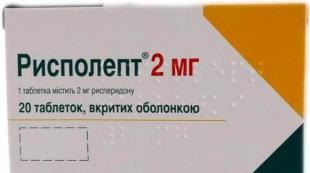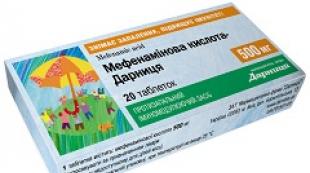Well-being. Treatment at reduced atmospheric pressure. Weather factors affecting well-being
Noise is insidious, it harmful effects on the body occurs invisibly, imperceptibly. Disturbances in the human body due to noise become noticeable only over time.
Currently, doctors are talking about noise disease, which develops as a result of exposure to noise with primary damage to the hearing and nervous system.
Weather and human well-being
Several decades ago, almost no one even thought of connecting their ability to work, their emotional condition and well-being with the activity of the Sun, with the phases of the Moon, with magnetic storms and other cosmic phenomena.
In any natural phenomenon around us, there is a strict repeatability of processes: day and night, ebb and flow, winter and summer. Rhythm is observed not only in the movement of the Earth, Sun, Moon and stars, but is also integral and universal property living matter, a property that penetrates all life phenomena - from the molecular level to the level of the whole organism.
In the course of historical development, man has adapted to a certain rhythm of life, determined by rhythmic changes in the natural environment and the energy dynamics of metabolic processes.
Currently, many rhythmic processes in the body, called biorhythms, are known. These include the rhythms of the heart, breathing, bioelectrical activity brain. Our whole life is permanent shift rest and active activity, sleep and wakefulness, fatigue from hard work and rest. In the body of every person, like sea tides and ebb, a great rhythm eternally reigns, arising from the connection of life phenomena with the rhythm of the Universe and symbolizing the unity of the world.
The central place among all rhythmic processes is occupied by circadian rhythms, which have highest value for the body. The body's response to any impact depends on the phase of the circadian rhythm, that is, on the time of day. This knowledge led to the development of new directions in medicine - chronodiagnostics, chronotherapy, chronopharmacology. They are based on the proposition that the same remedy in various watches day has different, sometimes directly opposite, effects on the body. Therefore, to receive greater effect it is important to indicate not only the dose, but also exact time taking medications.
Climate also has a serious impact on human well-being, influencing it through weather factors. Weather conditions include complex physical conditions: Atmosphere pressure, humidity, air movement, oxygen concentration, degree of disturbance in the Earth's magnetic field, level of atmospheric pollution.
With a sudden change in weather, the physical and mental performance, diseases are getting worse, the number of mistakes, accidents and even deaths is increasing.
Majority physical factors external environment, in interaction with which it evolved human body, are of electromagnetic nature.
It is well known that near fast-flowing water the air is refreshing and invigorating. It contains many negative ions. For the same reason, the air after a thunderstorm seems clean and refreshing to us.
On the contrary, the air in cramped rooms with an abundance of various kinds electromagnetic devices are saturated with positive ions. Even a relatively short stay in such a room leads to lethargy, drowsiness, dizziness and headaches. A similar picture is observed in windy weather, on dusty and humid days. Experts in the field of environmental medicine believe that negative ions have a positive effect on health, while positive ions have a negative effect.
Weather changes do not have the same effect on well-being different people. When the weather changes, a healthy person makes timely adjustments physiological processes in the body to changed environmental conditions. As a result, the protective reaction is enhanced and healthy people practically do not feel negative influence weather.
Landscape as a health factor
A person always strives to go to the forest, to the mountains, to the shore of the sea, river or lake. Here he feels a surge of strength and vigor. No wonder they say that it is best to relax in the lap of nature. Sanatoriums and holiday homes are being built in the most beautiful corners. This is not an accident. It turns out that the surrounding landscape can have different impact on psycho-emotional state. Contemplation of the beauty of nature stimulates vitality and calms the nervous system. Plant biocenoses, especially forests, have a strong healing effect.
The attraction to natural landscapes is especially strong among city residents. Back in the Middle Ages, it was noticed that the life expectancy of city dwellers was shorter than that of rural residents. Lack of greenery, narrow streets, small courtyards, wells, where almost no one penetrated sunlight, created unfavorable conditions for human life. With the development of industrial production in the city and its environs, great amount waste that pollutes the environment.
Various factors associated with the growth of cities, to one degree or another, affect the formation of a person and his health. This forces scientists to increasingly study the influence of the environment on city residents. It turns out that the person’s mood and ability to work depend on the conditions in which a person lives, the height of the ceilings in his apartment and how sound-permeable its walls are, how a person gets to his place of work, with whom he communicates on a daily basis, and how the people around him treat each other. , activity is his whole life.
In cities, people come up with thousands of tricks for the convenience of their lives - hot water, telephone, various types of transport, roads, services and entertainment. However, in big cities The disadvantages of life are especially pronounced - housing and transport problems, increased morbidity levels. For example, saturation of the environment and production with high-speed and high-speed machines increases stress and requires additional effort from a person, which leads to overwork.
Polluted air in the city, poisoning the blood with carbon monoxide, causes the same harm to a non-smoker as smoking a pack of cigarettes a day by a smoker. Serious negative factor In modern cities there is so-called noise pollution.
Considering the ability of green spaces to favorably influence the state of environment, they need to be brought as close as possible to the place where people live, work, study and relax.
It is very important that the city be a biogeocenosis, even if not absolutely favorable, but at least not harmful to people’s health. Let there be a zone of life here. To do this, it is necessary to solve a lot of urban problems. All enterprises that are unfavorable from a sanitary point of view must be moved outside the cities.
Green spaces are an integral part of a set of measures to protect and transform the environment. They not only create favorable microclimatic and sanitary conditions, but also increase the artistic expressiveness of architectural ensembles.
Several decades ago, it never occurred to almost anyone to connect their performance, their emotional state and well-being with the activity of the Sun, with the phases of the Moon, with magnetic storms and other cosmic phenomena.
In any natural phenomenon around us, there is a strict repeatability of processes: day and night, ebb and flow, winter and summer. Rhythm is observed not only in the movement of the Earth, Sun, Moon and stars, but is also an integral and universal property of living matter, a property that penetrates all life phenomena - from the molecular level to the level of the whole organism.
In the course of historical development, man has adapted to a certain rhythm of life, determined by rhythmic changes in the natural environment and the energy dynamics of metabolic processes.
Currently, many rhythmic processes in the body, called biorhythms, are known. These include the rhythms of the heart, breathing, and bioelectrical activity of the brain. Our whole life is a constant change of rest and active activity, sleep and wakefulness, fatigue from hard work and rest. In the body of every person, like the ebb and flow of the sea, a great rhythm eternally reigns, arising from the connection of life phenomena with the rhythm of the Universe and symbolizing the unity of the world.
The central place among all rhythmic processes is occupied by circadian rhythms, which are of greatest importance for the body. The body's response to any impact depends on the phase of the circadian rhythm (that is, on the time of day). This knowledge led to the development of new directions in medicine - chronodiagnosis, chronotherapy, chronopharmacology. They are based on the proposition that the same drug at different times of the day has different, sometimes directly opposite, effects on the body. Therefore, to obtain a greater effect, it is important to indicate not only the dose, but also the exact time of taking the medication.
Climate also has a serious impact on human well-being, influencing it through weather factors. Weather conditions include a complex of physical conditions: atmospheric pressure, humidity, air movement, oxygen concentration, the degree of disturbance of the Earth's magnetic field, and the level of atmospheric pollution.
With a sharp change in weather, physical and mental performance decreases, illnesses worsen, and the number of mistakes, accidents and even deaths increases.
Most of the physical factors of the external environment, in interaction with which the human body has evolved, are of an electromagnetic nature.
It is well known that near fast-flowing water the air is refreshing and invigorating. It contains many negative ions. For the same reason, the air after a thunderstorm seems clean and refreshing to us.
On the contrary, the air in cramped rooms with an abundance of various kinds of electromagnetic devices is saturated with positive ions. Even a relatively short stay in such a room leads to lethargy, drowsiness, dizziness and headaches. A similar picture is observed in windy weather, on dusty and humid days. Experts in the field of environmental medicine believe that negative ions have a positive effect on health, while positive ions have a negative effect.
Weather changes do not affect the well-being of different people in the same way. In a healthy person, when the weather changes, physiological processes in the body are timely adjusted to the changed environmental conditions. As a result, the protective reaction is enhanced and healthy people practically do not feel the negative influence of the weather.
The main indicator of a person’s happiness is his well-being. We often talk about this; friends, loved ones, and doctors often ask us about this at their appointments. Has anyone ever thought about what this is?
- these are all our feelings of psychological and physical comfort from what is happening around and inside us, that is, from life itself. Our well-being is a qualitative characteristic (good or bad) of our actions in this life and their results.
Since ancient times, people have been looking for all kinds of means to improve their well-being, and only the sages knew that all this depends only on our internal state and it is precisely this that is decisive in everything, including our physical component.
Good and bad health of a person
Our peace of mind is the basis of everything. If we thoroughly examine all diseases, we can see that at the heart of almost every one of them is our internal dissatisfaction with current events. Our grandmothers were right when they said that “all diseases come from nerves.” Poor health of a person- this is, first of all, his feeling of helplessness and, as a consequence of this, low self-esteem. As a result of this, we begin to engage in self-flagellation, blame ourselves for all mortal sins and devalue our lives. As a result, we fix all our attention on our failures, even the smallest ones. As a result, our immune system does not have the strength (strength = attention) to cope with those constantly attacking us foreign elements and our body begins to hurt. Any disease lowers our vitality even lower, and so it turns out vicious circle, or more precisely, a “downward spiral.”
Bad feeling- this is not something that exists independently and without cause, it is a consequence of some of our wrong actions, which we assessed just as incorrectly.
Have you ever thought about the fact that our good health has a positive effect on our environment? Have you noticed that, for example, we like to be in the company of a cheerful person or a calm person, whose calmness inspires us with confidence in the future? In the company of such people, we begin to treat ourselves with respect and feel more confident and stronger. Such people become leaders in any team. When we feel good, we don’t even notice that we stop getting sick, catching colds, and even very serious illnesses start to disappear somewhere.
That is why improvement of well-being- this is, first of all, a revision of many of our life principles, changing your point of view on what is happening and your assessments of events. Respect and love for your surroundings is the basis wellness, and love for others begins with love for oneself. Stop blaming yourself for all mortal sins. Understand that victory or defeat is just your assessment and nothing more. Any failure is a life lesson that needs to be learned, and by learning it we become stronger. That is life. And that's the beauty of it. There is not a single person on the entire planet who does not make mistakes and, in the end, the anatomy of life consists of trials, errors and their corrections. When you realize this, we guarantee that good health will be your main companion in life.
Improving your well-being with Transfer Factor
As we have already said, a person’s poor health should not be allowed to disrupt the immune processes in the body, which lead to the appearance of various kinds of diseases. These diseases then give reverse effect, lowering your well-being even further. This circle needs to be broken.  The best way to restore the optimal course of immune processes is to resort to help. This drug has a unique algorithm for influencing our body. He immediately eliminates the cause immune disorders, and does not fight their consequences - diseases. The causes of all immune disorders are structural changes our DNA - " software"of our immune system. Transfer factor is based on molecules of the same name - carriers of immune memory. Once in our body, these molecules “correct” all violations in the DNA structure, thereby bringing our immunity to an optimal state. That’s it! So simple and so effective .
The best way to restore the optimal course of immune processes is to resort to help. This drug has a unique algorithm for influencing our body. He immediately eliminates the cause immune disorders, and does not fight their consequences - diseases. The causes of all immune disorders are structural changes our DNA - " software"of our immune system. Transfer factor is based on molecules of the same name - carriers of immune memory. Once in our body, these molecules “correct” all violations in the DNA structure, thereby bringing our immunity to an optimal state. That’s it! So simple and so effective .
If you are constantly feeling unwell, buy Transfer Factor, take care of your health and think about your life priorities. And we guarantee you: very soon you will feel very healthy and this state will prevail in your life.
Weather sensitivity is the body's reaction to changes weather conditions. Today this relationship has been scientifically confirmed, but for several decades not everyone took the existence of weather dependence seriously. By the way, weather sensitivity is not just drowsiness or headaches in rainy weather - everything is much more serious. It has been proven that, against the background of certain weather conditions, some people may experience exacerbations of chronic diseases, asthma attacks, heart attacks or strokes. Why does this happen, what weather is most dangerous for weather-sensitive people, and is it possible to somehow break your “connection” with the weather? Answers to these questions modern science I already found.
Is weather sensitivity a disease of modern people?
Someone might think that the dependence of well-being on weather conditions is the destiny of modern man and the blame for it all is bad ecology or frequent stress. In fact, the reasons are different. Let's say more, even in ancient times, people noticed that changes in the weather affected their well-being.
Hippocrates mentioned weather dependence in his writings approximately 400 BC. The ancient Germans noticed that in damp, cold weather joint pain became more frequent and they called this condition nothing more than weather pain. A Tibetan doctors and they generally believed that any illness was, to one degree or another, related to weather conditions. In more late times researchers assumed that even a change in wind direction can affect a person’s well-being, and constant alternations of warm and cold atmospheric fronts were called main reason ailments.
Why do we react to the weather?
The human body is designed in such a way that it is able to resonate to any changes in weather conditions. Any changes in the weather do not go unnoticed by our bodies. The reason for this relationship is usually called our nerve receptors, which, like antennas, detect weather changes. As a result, under certain signals nerve cells the entire body also adapts, and in this case, organs and systems temporarily switch to functioning in a state of stress, that is, “increased combat readiness.” The outcome of such events is easy to predict: the most weakened systems begin to malfunction. In some people the cardiac system reacts, in others the nervous system reacts, and still others complain of digestive problems.
 But here’s the question: why do some react extremely painfully to changes in weather, while others don’t even notice weather vagaries. The whole reason is the body’s ability to adapt and adapt to natural phenomena. If the adaptation mechanisms in the body work properly, then the person does not react in any way to changes in the weather outside the window. IN otherwise we have to talk about weather dependence or weather sensitivity.
But here’s the question: why do some react extremely painfully to changes in weather, while others don’t even notice weather vagaries. The whole reason is the body’s ability to adapt and adapt to natural phenomena. If the adaptation mechanisms in the body work properly, then the person does not react in any way to changes in the weather outside the window. IN otherwise we have to talk about weather dependence or weather sensitivity.
Meteopathy and meteosensitivity: how to recognize
If, against the backdrop of a change in weather, the general condition of the body changes, then they say that a person has meteopathy (meteo - a celestial phenomenon, pathos - suffering, illness). But meteosensitivity, or meteodependence, is increased sensitivity people to changing weather conditions. Researchers suggest that approximately 35-40% of the world's population suffers from weather sensitivity. Most of these are older people: approximately 8 out of 10 elderly men and women complain that their well-being is dependent on the weather.
Meteor dependence can manifest itself in the most different symptoms. The manifestation of the disorder largely depends on age and general condition human health. In young people with relatively good health Changes in weather may be accompanied by ailments varying degrees, in people old age and those suffering chronic illnesses At such times, your health worsens and old sores remind you of themselves. Weather-sensitive individuals usually complain of increased fatigue, loss physical strength, decline mental activity, inability to collect thoughts.
Abrupt change The weather also affects the quality of sleep: while some people are hampered by insomnia, others, on the contrary, fall asleep on the go. In addition, the weather also affects the mood of weather-sensitive individuals. It can make us hot-tempered, irritable, and overly restless.
 One of the most common symptoms of weather dependence is headache, which appears when weather conditions change. It is often difficult to determine the nature of such pain and at first it seems causeless. The same can be said for abdominal pain. People who are weather dependent may experience spasms in digestive organs without visible signs poisoning. Also, due to weather conditions, it may change arterial pressure and body temperature (for some it rises to 37.3).
One of the most common symptoms of weather dependence is headache, which appears when weather conditions change. It is often difficult to determine the nature of such pain and at first it seems causeless. The same can be said for abdominal pain. People who are weather dependent may experience spasms in digestive organs without visible signs poisoning. Also, due to weather conditions, it may change arterial pressure and body temperature (for some it rises to 37.3).
Weather sensitivity index: how to determine
If earlier many doctors dismissed patients who complained of deterioration in health due to weather changes, nowadays it is customary to carefully examine such patients and even calculate the meteosensitivity index.
Meteosensitivity index (meteotropic index) is the general medical assessment weather lability (sensitivity to changes in weather conditions) of the patient.
To determine the level of weather lability, doctors are guided by a set of certain clinical criteria. Most often, the 10 most popular questions are used to collect anamnesis:
- complaints when weather or climate changes;
- decreased activity;
- deterioration of health;
- tendency to depression;
- anticipation of a change in the weather situation: signal reactions of the body even before the weather changes;
- repeatability of the same signs in a specific weather situation;
- synchronicity of meteorological reaction with other weather-sensitive people;
- normalization of well-being in favorable weather;
- short duration of deterioration;
- absence of other reasons for exacerbation of the disease or deterioration of the condition.
If the patient has 5 or more signs out of 10, they say that he has increased weather sensitivity. In addition, to determine the nature of meteosensitivity, a person may be asked to undergo several laboratory research. As a rule, doctors are interested in heart rate, blood pressure, platelet and leukocyte counts, blood clotting rate, changes in cold testing and some other indicators, which are measured twice: during periods of good health and during unfavorable weather conditions.
Meteopathological syndromes
 IN last decades Many studies have been conducted with the participation of people with increased weather sensitivity. This allowed experts to determine some typical symptoms depending on the weather situation. Researchers call them meteorological syndromes or symptom complexes. In different people, the syndromes can appear individually or in combination with other symptoms.
IN last decades Many studies have been conducted with the participation of people with increased weather sensitivity. This allowed experts to determine some typical symptoms depending on the weather situation. Researchers call them meteorological syndromes or symptom complexes. In different people, the syndromes can appear individually or in combination with other symptoms.
Today, patients most often experience the following meteopathological symptom complexes:
- rheumatoid (fatigue, general weakness And fast fatiguability, different inflammatory reactions, pain);
- cerebral (irritability, general excitability, headaches, sleep disturbance, respiratory dysfunction);
- vegetative-vascular (blood pressure surges, autonomic disorders);
- cardiorespiratory (cough, increased respiratory rate, increased heart rate);
- dyspeptic ( discomfort in the area of the stomach, intestines and/or under the right ribs, nausea, lack of appetite, stool disturbance);
- immunological (violation defensive reactions body, tendency to colds and fungal diseases);
- skin-allergic (skin rashes, itching and other reactions typical of allergies);
- hemorrhagic (bleeding rashes on the skin, bleeding of mucous membranes, rushes of blood to the head, nosebleeds, increased blood supply to the conjunctiva, changes in the blood formula).
Sometimes, if the body’s reactions to certain meteorological factors are very pronounced and are repeated quite often, they speak of the development of a general adaptation-meteotropic syndrome. In this case, the balance of the whole organism is disturbed. Problems arise in the field of metabolism and energy metabolism, enzymatic activity, tissue structure and blood formula change.
Weather sensitivity in adults and children: who is at risk
During evolution, human organisms have learned to adapt to changes in weather conditions. If the weather situation changes evenly and insignificantly, healthy people, as a rule, do not notice it. It is a different matter for persons suffering chronic diseases. In this case, in response to changes in weather conditions, a person may experience a pathological (meteotropic) reaction. By the way, if earlier experts believed that mainly elderly people suffered from weather sensitivity, now last years record a significant “rejuvenation” of the disorder. This is associated with acceleration ( accelerated development body) modern people. Moreover, some researchers suggest that this disorder may be hereditary, as evidenced by the meteosensitivity of infants.
 As observations show, the level of manifestation of meteosensitivity depends on various factors:
As observations show, the level of manifestation of meteosensitivity depends on various factors:
- age and gender of the person;
- form and stage of the disease (chronic);
- type of nervous system;
- level of adaptive capabilities of the body.
It is known that residents of different climatic zones may have their own characteristics and manifest themselves in different ways. A weather-sensitive person does not necessarily react to all the vagaries of nature (changes in atmospheric pressure, magnetic storms, humidity, etc.); only one of the factors can cause deterioration in well-being, while others go unnoticed by the body.
IN Lately researchers became seriously interested in the impact of meteorological factors on human senses (vision, hearing). It turned out that visual weather patterns (clouds, rain, rainbows, etc.) can influence the external behavior (actions, speech) of a weather-sensitive person. While auditory meteorological images cause changes in internal behavior (thinking, motivation, imagination, faith). Interestingly, a person can perceive weather sounds at a distance of more than 50 km from the source.
Weather factors affecting well-being
Magnetic storms
Probably, many of us periodically come across warnings about impending magnetic storms on the Internet and the media. As a rule, in such news, weather-sensitive people are advised to dangerous period listen carefully to your body's signals. And many listen, although they do not fully understand what magnetic storms are and why they affect people in different countries and cities. To understand where this relationship comes from, let's remember physics. Our planet is surrounded magnetic field, which protects the Earth from radiation from space. But sometimes, when very bad things happen on the Sun powerful flashes, even a magnetic field does not help. After the flare, a shock wave is sent towards the Earth at a speed of about 1200 km/s. It shakes the magnetic field, which is why those very storms arise.
For weather-sensitive people, such changes in space rarely go unnoticed. Severe headache, arrhythmia, blood pressure surges, It's a dull pain in places old injuries and other types of illness. And although many still believe that deterioration in well-being during magnetic storms- this is the result of banal autosuggestion, but medical statistics suggests that ambulances respond to calls much more often during space storms than at other times. Doctors agree that during this period people with hypertensive crises, strokes and heart attacks. Many of these attacks during a magnetic storm are fatal.
 So why do magnetic storms still affect our well-being? It's about the chemical composition of our blood. It is known to contain a lot of , and this element is characterized by its response to magnetic waves. As a result, during a magnetic storm, the blood in our vessels circulates with disruptions, the blood supply to the heart and brain is disrupted - hence most of the problems.
So why do magnetic storms still affect our well-being? It's about the chemical composition of our blood. It is known to contain a lot of , and this element is characterized by its response to magnetic waves. As a result, during a magnetic storm, the blood in our vessels circulates with disruptions, the blood supply to the heart and brain is disrupted - hence most of the problems.
Dangerous winds
Do you think that because of the wind you can only get a cold or ear pain? Not at all. Even when at home, weather dependent people can react painfully to the wind outside the window. In particular, Japanese researchers discovered a relationship between the direction of winds and the frequency of asthmatic attacks in patients.
The most dangerous winds for weather-dependent people are winds directed from top to bottom (for example, foehns and mistrals). For example, those that form at the tops of mountains and descend to the foot. Along the way, this wind becomes drier, warmer and faster. When such winds blow in a certain area, doctors record the most various deviations: from mild illness to severe headaches and even heart attacks.
And since ancient times, the inhabitants of the Mediterranean region had a belief that the north wind of the Tramontana brings madness to some, and makes others geniuses. In our time, the death of Rojo tried to find out what is behind this legend. It turned out that a certain influence of tramontana on mental health residents of the region still exist. In particular, after studying the condition of 300 people, the doctor came to the conclusion that the natural phenomenon affects the condition of the neurons of the brain. During the Tramontana period, some people are more prone to depression and experience complete exhaustion, while for others the north wind acts as an antidepressant. Scientists have not yet been able to figure out why this happens.
Atmosphere pressure
It is well known that the planet is enveloped in a dense air mass, which we call the atmosphere. And of course, it is not weightless. It’s hard to believe, but approximately 10-15 tons of air mass press on each of us every second. Meanwhile, we don’t feel this mainly because our blood contains oxygen.
For people, the most comfortable atmospheric pressure is considered to be within the range of 750-760 mmHg (depending on geographical location). If this indicator changes sharply, this affects the well-being of weather-sensitive individuals. Many of them don’t even have to leave their apartment to predict changes in the weather. Wet palms, severe headache and incomprehensible weakness - this is how meteosensitivity usually manifests itself in VSD, endocrine and cardiovascular systems. According to researchers, the heart, liver and nervous system respond most quickly to changes in atmospheric pressure. By the way, women living in megacities react more severely to sudden changes in atmospheric pressure. Presumably, due to aggravating factors: poor ecology and the harsh rhythm of life.
Increased blood pressure (anticyclone)
 People with cardiovascular disorders react most acutely to changes in this meteorological indicator. The most dangerous thing for them is sharp increase atmospheric pressure. Such weather conditions cause changes in vascular tone, accelerate blood clotting, which leads to increased thrombus formation. On days with high atmospheric pressure, the risk of heart attacks and strokes increases. This weather is especially dangerous for people with disabilities cerebral vessels. In addition, high atmospheric pressure affects the functioning of the immune system, reducing the number of leukocytes in the blood. Therefore, during such periods, a weather-sensitive person is more susceptible to various infections. The researchers noticed another interesting pattern: when the mercury column exceeds 750-760 mm, weather-dependent people may experience worsening mood and depression.
People with cardiovascular disorders react most acutely to changes in this meteorological indicator. The most dangerous thing for them is sharp increase atmospheric pressure. Such weather conditions cause changes in vascular tone, accelerate blood clotting, which leads to increased thrombus formation. On days with high atmospheric pressure, the risk of heart attacks and strokes increases. This weather is especially dangerous for people with disabilities cerebral vessels. In addition, high atmospheric pressure affects the functioning of the immune system, reducing the number of leukocytes in the blood. Therefore, during such periods, a weather-sensitive person is more susceptible to various infections. The researchers noticed another interesting pattern: when the mercury column exceeds 750-760 mm, weather-dependent people may experience worsening mood and depression.
Days when the barometer shows high atmospheric pressure pose a certain danger for allergy sufferers and people with illnesses respiratory organs. The reason is that with such weather conditions, an anticyclone reigns - clear and windless weather, when the amount of gases hazardous to health and industrial emissions in the air significantly increases. If an anticyclone with its docile weather lingers for a long time, then for some people such weather becomes deadly.
Reduced blood pressure (cyclone)
The decrease in atmospheric pressure and the arrival of a cyclone also does not go unnoticed by many inhabitants of the planet. In this case, people prone to hypotension (low blood pressure), as well as asthmatics and heart patients, react most acutely to weather changes. Against the background of reduced atmospheric pressure, high humidity and lack of oxygen, they may experience shortness of breath, dizziness, general weakness, and difficulty breathing. For people with disabilities respiratory system the most dangerous is considered to be high humidity in hot weather summer days and slushy winter weather. In addition, low atmospheric pressure is one of the triggers (attacks of severe headaches worsen), as well as a cause of intestinal dysfunction (intestinal colic may also occur).
Air temperature
Not every person is able to withstand fluctuations in air temperature without deteriorating their health. Mostly we're talking about about fluctuations of 10 degrees or more during the day. The more often such surges occur, the more histamine is produced in our bodies. And this substance is known as an allergy provocateur. Thus, even people who do not suffer from the disease are prone to allergic reactions. In addition, sudden changes in thermometer readings affect a person’s mood: he becomes more irritable and hot-tempered.
 More more problems health problems for weather-sensitive people occur when changes in air temperature occur simultaneously with changes in atmospheric pressure. People with impaired functioning of the cardiovascular or respiratory systems do not respond well to a simultaneous increase in air temperature and decrease in atmospheric pressure. A a sharp decline temperature against the background of increased atmospheric pressure worsens the condition of hypertensive patients, asthmatics, as well as people with diseases of the stomach and genitourinary system.
More more problems health problems for weather-sensitive people occur when changes in air temperature occur simultaneously with changes in atmospheric pressure. People with impaired functioning of the cardiovascular or respiratory systems do not respond well to a simultaneous increase in air temperature and decrease in atmospheric pressure. A a sharp decline temperature against the background of increased atmospheric pressure worsens the condition of hypertensive patients, asthmatics, as well as people with diseases of the stomach and genitourinary system.
Humidity
The optimal air humidity for humans is 40-60%. If indicators deviate in one direction or another, weather-sensitive people react almost immediately.
If the humidity drops to 30-40%, irritation of the mucous membranes of the nasopharynx occurs. Such changes are most dangerous for people with asthma or allergies. To prevent deterioration of health, on days with very low air humidity it is useful to rinse the nasopharynx with a slightly salted solution.
Excessive air humidity (70-90%) that occurs during periods of frequent precipitation is no less dangerous for weather-sensitive people. People with chronic diseases kidneys and joints. They should not go outside unnecessarily in wet weather, and if they do go for a walk, then only in warm, comfortable clothes. During this period, the body's need for vitamins and.
Why is weather sensitivity dangerous?
Weather sensitivity is not such a harmless disorder as one might assume. They suffer under the influence of the vagaries of the weather. different systems body.
Immunity. Frequent shifts climatic conditions lead to the fact that the immune system is depleted because it works in an intense mode for a long time. As a result, a person gets sick easier and more often.
The cardiovascular system. Sudden changes in weather conditions cause the release of stress hormones, which provoke blood thickening, which creates additional risks for people with cardiovascular diseases, metabolic syndrome, diabetes mellitus, vegetative-vascular dystonia. Therefore, people at risk should take blood thinners on the day of the weather change and a day earlier (only as prescribed by a doctor).
Endocrine system. A sudden change in weather is stressful for the whole body, including endocrine system and pancreas. Unstable weather conditions are one of the reasons for the depletion of the gland that produces insulin. The result is increased blood sugar and the development of diabetes. That is why, in unfavorable weather conditions, even healthy people It is advisable to control the level of sugar in the bloodstream. And people with diabetes must do this.
Treatment of weather dependence
 Increased weather sensitivity pushes people to look for the most effective ways improvement of well-being. It is useful for people who respond to magnetic storms and other atmospheric phenomena to know how to deal with weather sensitivity.
Increased weather sensitivity pushes people to look for the most effective ways improvement of well-being. It is useful for people who respond to magnetic storms and other atmospheric phenomena to know how to deal with weather sensitivity.
Therapy for magnetic storms
If your health worsens due to magnetic storms, then during this period it is better not to engage in severe mental and physical work. To make it easier to cope with the period of solar flares, it is useful to get a good sleep, visit the fresh air, do not overeat heavy foods and take vitamins. In addition, a few days before the start of a magnetic storm, it is useful to go in for sports, refuse bad habits and switch to a healthy diet.
therapists advise going to bed earlier than usual.
Treatment at low atmospheric pressure
First aid for weather sensitivity caused by a decrease in atmospheric pressure is to normalize the blood pressure of a weakened person. As a preventive measure, on such days it is useful to reduce physical activity, in each working hour, set aside 10 minutes for rest. You should start the day with, then drink a lot of fluids, including with, and it is useful for heart patients to take special herbal tinctures (with the permission of the attending physician). Before going to bed, you can take a contrast shower and go to bed 1-2 hours earlier than usual.
Generally speaking, compliance healthy image life - The best way relieve symptoms of weather sensitivity. Therapists advise to strengthen yourself by swimming, running or race walking, To follow the rules healthy eating, get a good night's sleep, give up bad habits, and also bring your weight back to normal.
Dream. Healthy sleep provides rest nervous system, and this is the main condition for adequate adaptation of the whole organism to changes in weather conditions. Experts advise going to bed before 12 am and sleeping for at least 7 hours. It is especially useful to follow this rule before the weather changes.
Stimulants. Most modern people struggle with drowsiness and poor health energy drinks, strong coffee or . Some claim that nicotine helps them feel better. In reality, our bodies are so smart that they do not require additional stimulants, and addiction to them causes a failure in the self-regulation system, which further aggravates sensitivity to weather changes. Advice: stop overusing coffee and other energy products and the body will learn to react less painfully to weather factors.
Diet. Food is calories, calories are energy that the human body constantly needs. Weather sensitive people It is useful to eat foods rich in vitamins and minerals, including fruits and vegetables. Such food will strengthen the body as much as possible and prepare it for stress caused by changing weather.
Hardening. Hardened organisms tolerate changing weather conditions more easily. But hardening should begin not with jumping into an ice hole, but in the form contrast shower, gradually reducing the water temperature.
Lately, nature hasn’t often been pampering us with consistently good weather. Rather, on the contrary, it never ceases to amaze with surprises: either snow in the middle of summer, or almost summer weather in late autumn, and snowdrops for the New Year can now bloom not only in a fairy tale, but also in reality. And not everyone can endure all these weather surprises without deteriorating their health. Therefore, it is very important to understand what weather sensitivity is and how to help a person reacting to sudden weather changes.
Page 1
A person’s well-being is determined by the conditions of heat and moisture exchange, which depend on: the constitution of the person, his state of health, nervous tension, the nature of the work performed, the type and material of clothing; temperature, - humidity and speed of movement of the surrounding air; distances from the human body to surfaces that emit or absorb heat, their sizes and temperatures.
A person’s well-being indoors is determined by the conditions of heat and moisture exchange, which depend on: the constitution of the body, state of health, nervous tension, category of work performed, type and material of clothing; temperature, humidity and ambient air speed; distances from the human body to surfaces that emit or absorb heat, their sizes and temperatures. There is an opinion about the impact on human well-being of the presence of ions of different polarities in the indoor air and about the adverse effects of stable air parameters. Not all of them the listed factors can be controlled, however, all of them can be reflected in the assessment of the efficiency of the system.
A person’s well-being is determined by temperature, relative humidity and speed of air movement, the degree of its contamination by foreign impurities (gases, dust) and the intensity of thermal radiation from heated surfaces of production equipment and products. A person needs 15 - 17 m3 of air per day to breathe, the quality of which has a decisive influence on health.
A person’s well-being in a room is determined by the cleanliness of the air and heat exchange conditions.
A person’s well-being remains satisfactory when the equivalent effective temperatures are in the comfort zone; The nomogram shows two such zones - for the summer and winter periods.
A person’s well-being remains satisfactory when the equivalent effective temperatures are in the comfort zone; The nomogram shows two such zones - for the summer and winter periods. If the air is in motion, then the equivalent effective temperature will be different than when it is stationary.
A person’s well-being remains satisfactory when the equivalent effective temperatures are in the comfort zone. The nomogram shows two such zones - for the summer and winter periods. If the air is in motion, then the equivalent effective temperature will be different than when it is stationary. So, at a speed of 2 m/s (point D on the nomogram) and conditions this example this temperature is 14 C.
A person’s well-being depends on whether there is a lot or little water vapor in the air. Both dry and humid air are unpleasant. This means that the density of water vapor is 60% of the density of saturated water vapor at the same temperature.
A person’s well-being depends not only on maintaining a given dry air temperature in the room. A person in a room is also exposed to such thermal influences as drafts, cold floor surfaces, intense thermal radiation, etc. The influence of most of them in to a large extent studied by physiologists and hygienists. Especially adverse effect have an excessive impact on the human body high temperatures ceiling and floor surfaces.
Normal thermal well-being of a person (neither hot nor cold), corresponding this species work is achieved with a certain combination of these components.
A person’s well-being, in addition to the conditions of general heat transfer (the first condition of comfort), is influenced by thermal conditions, in which his head and legs are located. The human head is especially sensitive to radiation heating and cooling. Feet may become overheated or hypothermic when in contact with hot or cold floor surfaces. Cold air currents along the floor can cause colds.
A person’s well-being, in addition to the conditions of general heat transfer (the first condition of thermal comfort), is influenced by the thermal conditions in which his head and legs are located. The human head is especially sensitive to radiation heating and cooling. Feet may become overheated or hypothermic when in contact with hot or cold floor surfaces. Cold air currents along the floor can cause colds.
Therefore, normal thermal well-being of a person for a given type of work can be achieved with a certain combination of internal parameters.









